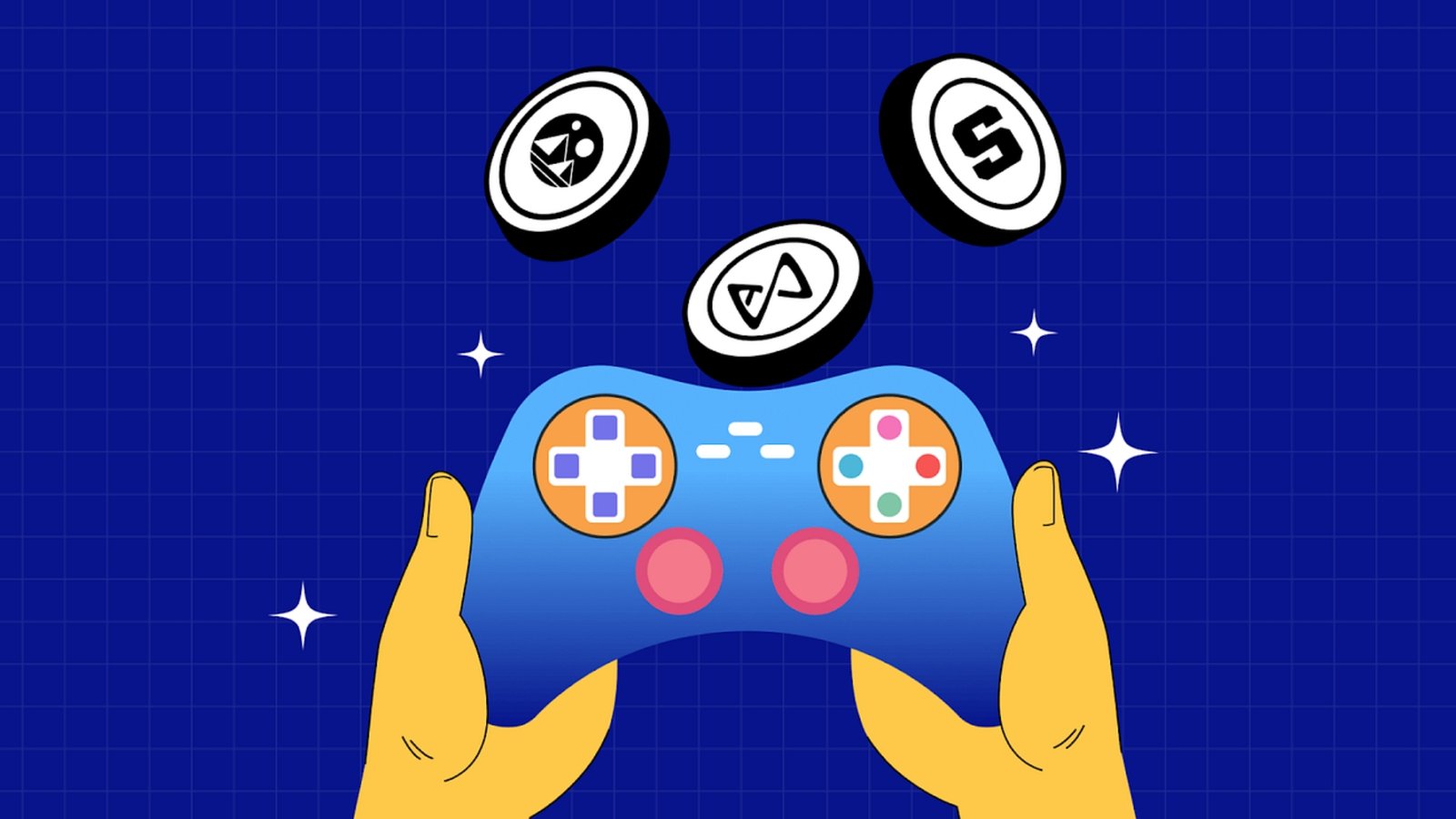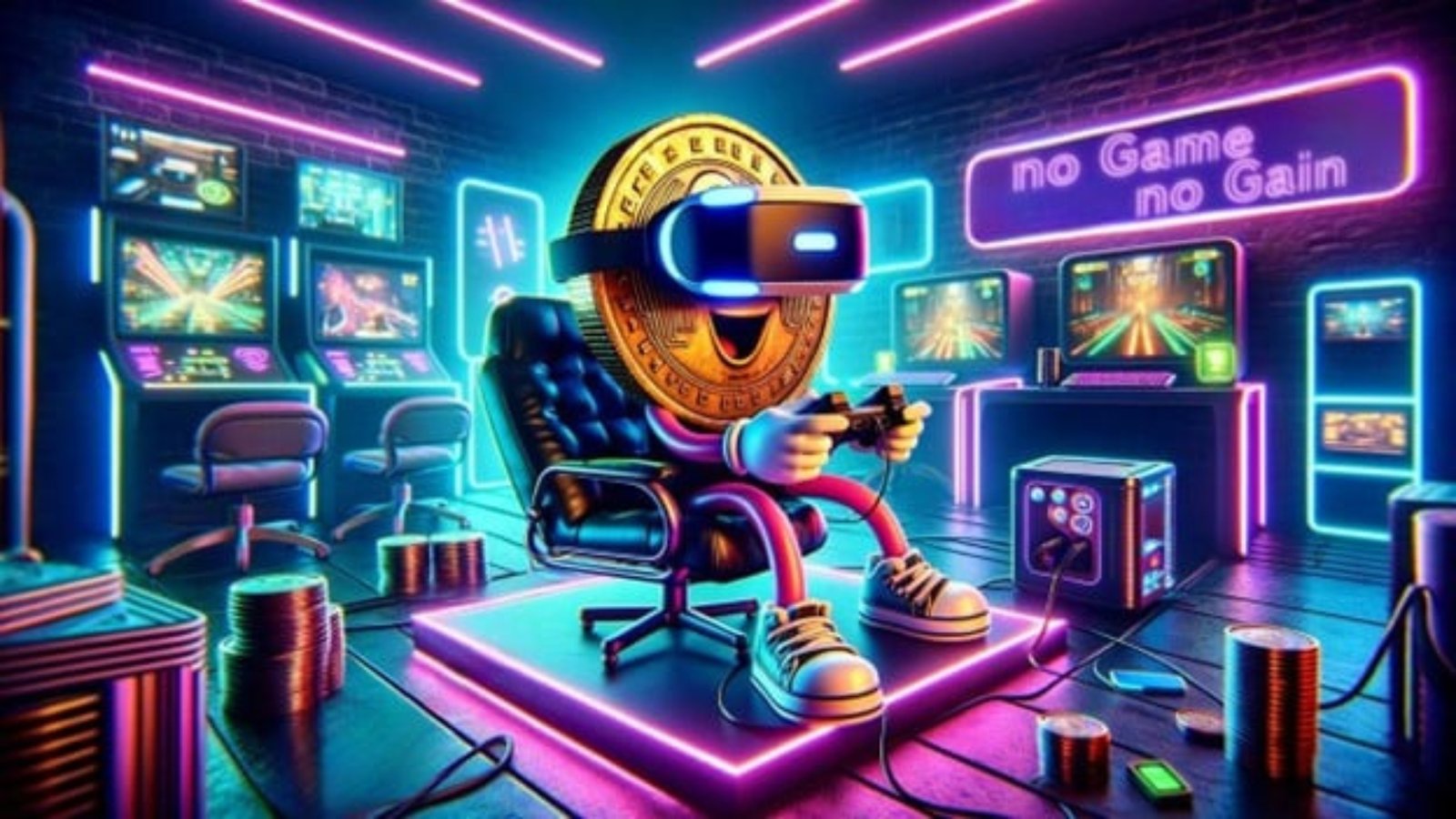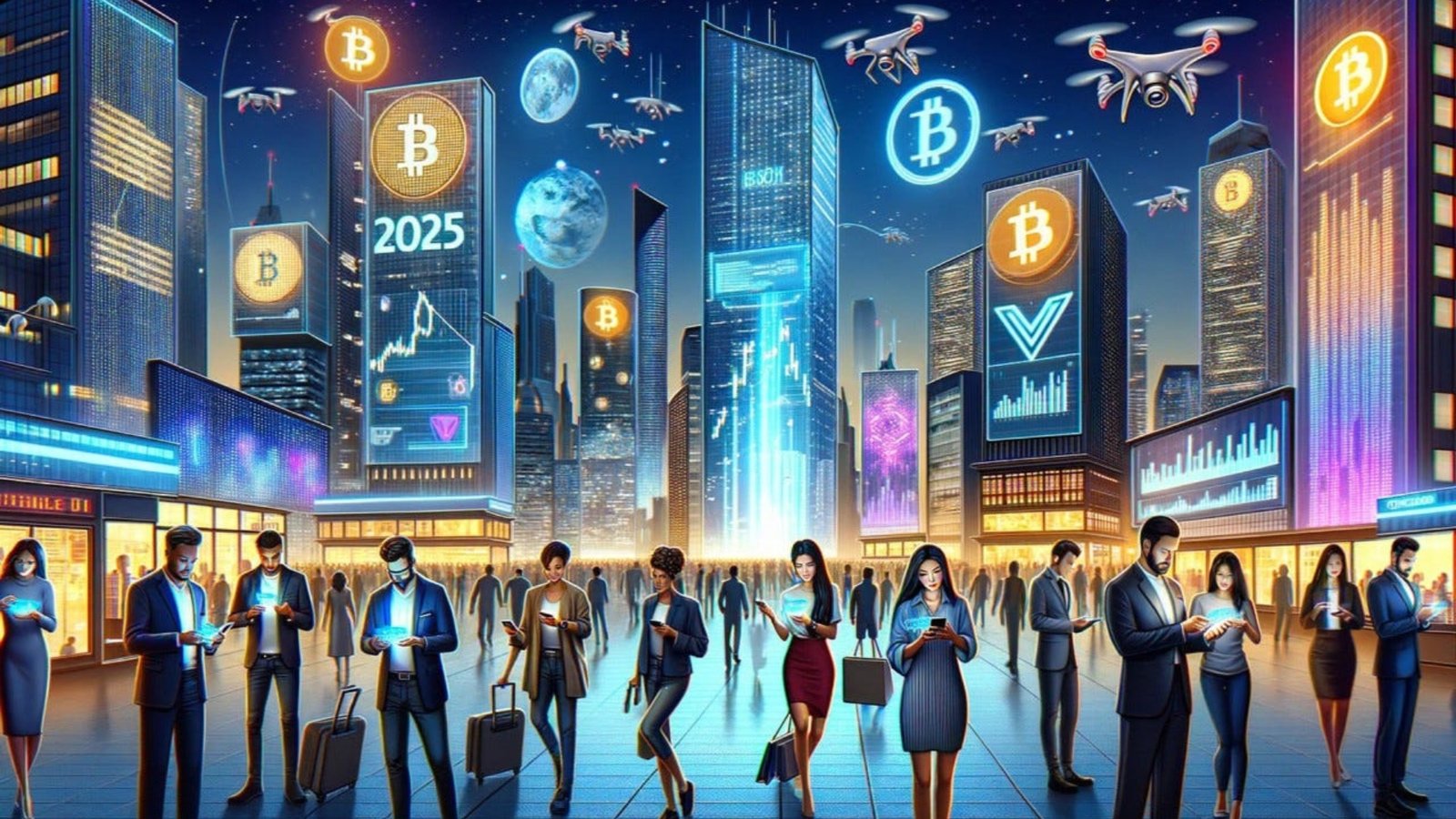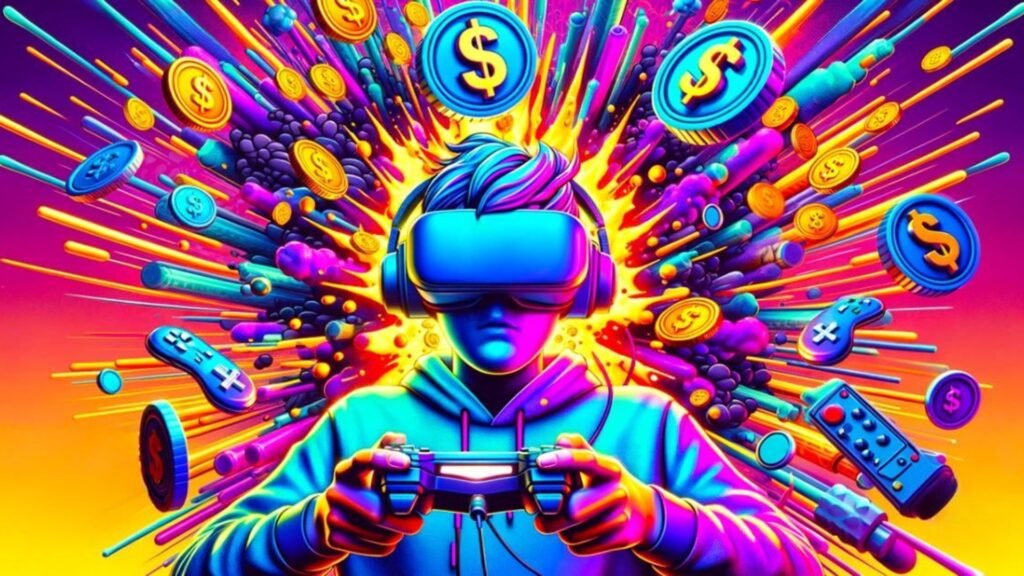The gaming world is undergoing a significant transformation driven by the integration of blockchain technology. This shift has led to the emergence of “gaming altcoins,” alternative cryptocurrencies explicitly tailored for the gaming industry.
The way games play out, are made, and make money is being turned on by these digital assets, which present new possibilities for investors, developers, and players alike. This article will explore the latest trends, key players, and prospects of gaming altcoins, providing a comprehensive overview of this dynamic and rapidly evolving sector.
The Rise of Gaming Altcoins
The gaming industry has always been at the forefront of technological innovation, from the advent of online multiplayer games to the rise of virtual and augmented reality. Integrating blockchain technology is the latest leap forward, offering decentralized and transparent solutions to longstanding issues such as in-game asset ownership, monetization, and fraud prevention. Gaming altcoins have emerged as a crucial ecosystem component, enabling secure, peer-to-peer transactions and fostering new economic models within the gaming world.
What Are Gaming Altcoins
The term “gaming altcoin” refers to a specific type of cryptocurrency built with the gaming industry in mind. These digital tokens can be used for staking in-game assets, buying in-game things, rewarding players, and joining DAOs, which control gaming ecosystems. Unlike traditional currencies, gaming altcoins operate on blockchain networks, providing transparency, security, and decentralization.
Key Features of Gaming Altcoins
- Ownership of In-Game Assets: One of the most significant advantages of gaming altcoins is the ability to own in-game assets truly. Players don’t own game things since the developer controls them. With gaming altcoins and blockchain, players can own, trade, and sell their in-game assets across different platforms, creating new opportunities for gamers.
- Decentralized Marketplaces: Gaming altcoins enable the creation of decentralized marketplaces where players can buy and sell in-game items without intermediaries. These marketplaces are typically powered by smart contracts, ensuring that transactions are secure and trustless.
- Play-to-Earn (P2E) Models: The concept of Play-to-Earn has revolutionized the gaming industry, allowing players to earn real-world value through gameplay. Gaming altcoins are often at the heart of these P2E models, rewarding players for their time, effort, and skill.
- Interoperability: Gaming altcoins can facilitate interoperability between different games and platforms. This breaks down gaming industry divisions by allowing assets from one game to be employed by another.
The Role of NFTs in Gaming Altcoins
Non-fungible tokens (NFTs) have become a pivotal element of gaming altcoins. NFTs are unique digital assets representing in-game items, characters, or entire game worlds. Gaming altcoins enable players to own, trade, and showcase their digital collections by leveraging NFTs. This has led to entirely new gaming experiences where the value of in-game assets extends beyond the virtual world.
Leading Gaming Altcoins
Several gaming altcoins have gained prominence, offering unique features and benefits. Here’s a look at some of the most influential gaming altcoins as of 2024:
Axie Infinity (AXS)
Axie Infinity has become one of the most well-known blockchain-based games, pioneering the Play-to-Earn model. The game’s native token, AXS, is used for governance, staking, and participating in various in-game activities. Players can earn AXS by battling, breeding, and trading their Axies (digital creatures). The success of Axie Infinity has demonstrated the potential of gaming altcoins to create sustainable economic ecosystems within games.
Decentraland (MANA)
Decentraland is a virtual world powered by the Ethereum blockchain. Users can buy, develop, and trade virtual land parcels. MANA, the native token of Decentraland, is used to purchase land, goods, and services within the virtual world. The platform’s decentralized nature has attracted a growing community of developers and creators, making it a vibrant virtual real estate and gaming ecosystem.
Enjin Coin (ENJ)
Enjin Coin is a versatile gaming altcoin that enables developers to create, manage, and integrate blockchain assets into their games. ENJ backs NFTs, making in-game tokenization easy. Enjin’s ecosystem also includes a suite of tools for developers, making it easier to build and integrate blockchain-based games with existing platforms.
The Sandbox (SAND)
The Sandbox is a decentralized gaming platform that allows users to create, own, and monetize their gaming experiences. SAND, the platform’s native token, is used for transactions, staking, and governance. The Sandbox’s emphasis on user-generated content and virtual real estate has made it popular among creators and gamers.
Gala Games (GALA)
Gala Games is a decentralized gaming ecosystem that aims to give players control over their in-game assets. The platform’s native token, GALA, purchases in-game items, votes on governance decisions, and rewards players. Gala Games has a growing portfolio of blockchain-based games, each offering unique Play-to-Earn opportunities.
Emerging Trends in Gaming Altcoins
As the gaming industry continues to evolve, several key trends are shaping the future of gaming altcoins:
Cross-Platform Integration
One of the most exciting developments in gaming altcoins is the increasing focus on cross-platform integration. Developers are working to create seamless experiences that allow players to use their gaming altcoins across different games and platforms. This interoperability breaks traditional barriers and enables a more connected gaming ecosystem.
DAO Governance
Decentralized Autonomous Organizations (DAOs) are becoming integral to gaming altcoin ecosystems. These DAOs allow players to participate in decision-making processes like game development, governance, and economic policies. By giving players a voice in the game’s direction, DAOs are fostering more engaged and invested communities.
Sustainability and Eco-Friendly Gaming
As blockchain technology faces criticism for its environmental impact, the gaming industry is exploring ways to make gaming altcoins more sustainable. Some projects are transitioning to more energy-efficient consensus mechanisms, such as Proof of Stake (PoS), and exploring partnerships with eco-friendly blockchain networks.
Metaverse Integration
The concept of the metaverse—a collective virtual shared space—is gaining traction, and gaming altcoins are playing a crucial role in its development. Virtual worlds are becoming increasingly interdependent, and altcoins are helping with transactions, ownership, and governance. As the metaverse expands, gaming altcoins will likely become even more central to its economy.
Regulation and Compliance
As gaming altcoins gain popularity, regulatory scrutiny is increasing. Governments and regulatory bodies are exploring ways to ensure these digital assets are used safely and legally. This includes addressing money laundering, fraud, and consumer protection issues. Developers and platforms are working to avoid these challenges by implementing compliance measures and collaborating with regulators.
Challenges and Opportunities
While gaming altcoins offer numerous benefits, they also face several challenges:
Market Volatility
Cryptocurrencies, including gaming altcoins, are known for their volatility. This can create challenges for players and developers, as the value of in-game assets can fluctuate significantly. Projects are exploring stablecoins and other mechanisms to mitigate these risks.
Scalability
As blockchain networks grow, scalability becomes a critical concern. High transaction fees and slow processing times can hinder the adoption of gaming altcoins. Layer 2 solutions like sidechains and state channels are being built to overcome these challenges and scale games using the blockchain.
User Experience
For many gamers, blockchain technology can be complex and intimidating. Improving the user experience is essential for the widespread adoption of gaming altcoins. This includes creating user-friendly interfaces, simplifying wallet management, and providing educational resources for new users.
Security Concerns
Security remains a top priority for gaming altcoins, as blockchain’s decentralized nature makes it a target for hackers. Ensuring the safety of players’ assets and data is crucial for maintaining trust in these ecosystems. Developers are continually working to enhance security measures and protect against vulnerabilities.
The Future of Gaming Altcoins
The future of gaming altcoins looks promising, with several key developments on the horizon:
Mainstream Adoption
Gaming altcoins will likely see increased mainstream adoption as more gamers and developers embrace blockchain technology. Major gaming companies are beginning to explore blockchain-based solutions, which could lead to integrating gaming altcoins into popular titles and platforms.
Innovative Game Designs
Blockchain technology is enabling new game designs that were previously impossible. This includes decentralized, player-driven economies, dynamic in-game assets, and novel gameplay mechanics. As developers continue experimenting with these possibilities, we can expect a new generation of innovative and engaging games.
Integration with Traditional Finance
The lines between gaming and finance are becoming increasingly blurred, with gaming altcoins playing a central role. We may see more integration between gaming platforms and traditional financial services, such as lending, borrowing, and investing. This could create new opportunities for players to earn and grow their wealth through gaming.
Evolving Regulatory Landscape
The regulatory landscape for gaming altcoins will continue to evolve, with governments and organizations working to create frameworks that protect consumers while fostering innovation. Navigating this landscape will be crucial for the long-term success of gaming altcoins, as compliance will be necessary to attract mainstream users and investors.
Final Thoughts
Gaming altcoins represent a transformative force in the gaming industry, offering new ways to play, create, and earn. As blockchain technology continues to advance, gaming altcoins will play an increasingly important role in shaping the future of gaming. Despite the challenges, the opportunities presented by gaming altcoins are immense, with the potential to revolutionize how we think about games, virtual assets, and digital economies. Whether you’re a gamer, developer, or investor, gaming altcoins are worth exploring, as they hold the key to the next frontier of interactive entertainment.
FAQs
What are gaming altcoins and how do they work?
Gaming altcoins are cryptocurrencies specifically designed for the gaming industry. They operate on blockchain networks and allow players to buy in-game items, truly own their digital assets, participate in decentralized autonomous organizations (DAOs), and earn rewards through gameplay. Unlike traditional in-game currencies controlled by developers, gaming altcoins provide transparency, security, and actual ownership of digital assets that can be traded or sold across different platforms.
What is the Play-to-Earn (P2E) model?
Play-to-Earn is a revolutionary gaming model that allows players to earn real-world value through gameplay. Instead of simply spending money on games, players can earn gaming altcoins by completing tasks, winning battles, breeding characters, or trading in-game assets. Games like Axie Infinity have pioneered this model, demonstrating that players can generate sustainable income through their gaming skills and time investment.
What are the main challenges facing gaming altcoins?
Gaming altcoins face several key challenges including market volatility (fluctuating cryptocurrency values), scalability issues (high transaction fees and slow processing times), complex user experience for non-technical gamers, and security concerns due to hacking threats. Additionally, the regulatory landscape is still evolving as governments work to create frameworks for these digital assets while addressing concerns about money laundering, fraud, and consumer protection.
How do NFTs relate to gaming altcoins?
NFTs (non-fungible tokens) are unique digital assets that represent in-game items, characters, or virtual worlds within gaming ecosystems. Gaming altcoins enable players to purchase, own, trade, and showcase these NFTs, creating a bridge between gameplay and actual asset ownership. This integration allows the value of in-game assets to extend beyond the virtual world, as players can buy and sell their NFTs in decentralized marketplaces.
What does the future hold for gaming altcoins?
The future looks promising with several developments on the horizon: increased mainstream adoption as major gaming companies explore blockchain solutions, innovative game designs with player-driven economies, greater integration with traditional financial services (lending, borrowing, investing), and the expansion of the metaverse, where gaming altcoins will play a central role in virtual economies. Cross-platform integration and more sustainable, eco-friendly blockchain mechanisms are also expected to drive growth in this sector.


